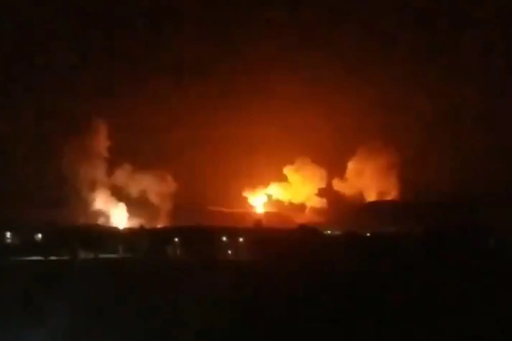Overview
On January 12th, 2024, the US carried out airstrikes against the Houthi Rebels in Yemen. The Houthi Rebels are an Iran-backed group that has been fueling the civil war in Yemen since 2014. Ten years later, the US took action on this conflict. The United States was assisted by Australia, Bahrain, Canada, and the Netherlands.
Reasoning for Airstrikes
In recent years, there have been attacks from the Houthis against international naval ships in the Red Sea. The airstrikes to Houthi-controlled areas were primarily in response to these attacks. Since the outbreak of conflict in Gaza, the US has struck other Iran-backed proxy groups in Iraq and Syria, but this is the first time the US has had any impact on the conflict in Yemen.
Brief Summary of Conflict
The conflict in Yemen began in 2014 when the Houthi rebels backed by Iran overthrew the Yemeni government. Since then, a coalition formed by Saudi Arabia has been fighting against the Houthi Rebels. This war, along with other recent wars in the Middle East, is known as a proxy war, and because of this, the war has continued for many years.
The History of Proxies in the Middle East
The modern borders of the Middle East were established by the countries that colonized them in the 20th century. After WWI, when the Middle East was free from European Colonization, the two most prominent entities that arose were Iran and Saudi Arabia. These two countries immediately began fighting for power and influence. One major source of this conflict is that Iran is primarily Shia and Saudi Arabia is largely Sunni. However, these two countries never directly fought each other. Instead, they support opposing sides in conflicts happening in other Middle Eastern countries as a way to fight for power and influence.
Conclusion
The war happening in Yemen is a complex, ongoing conflict that does not seem like it will end any time soon. The US and other Western countries have left this conflict alone for nearly a decade, but when the Houthi rebels attacked ships in the Red Sea, it was the last straw. The proxy between Saudi Arabia and Iran is a major factor keeping this war going and has taken it to the point where the US needed to be involved.


















Nate • Jan 30, 2024 at 10:29 am
Throughout history, proxy wars have been very problematic in the Middle East and this is just another incident in a long cycle of violence. It makes me wonder if the violence will ever end if foreign powers keep waging wars in the area. I thought this article portrayed the conflict in Yemen very well without being opinionated. I can see that religion is playing a huge role in the Middle East right now.